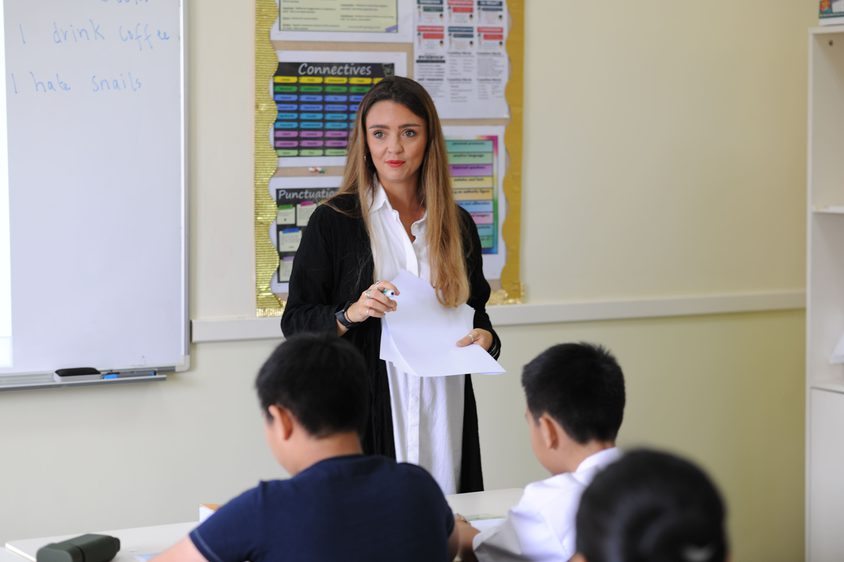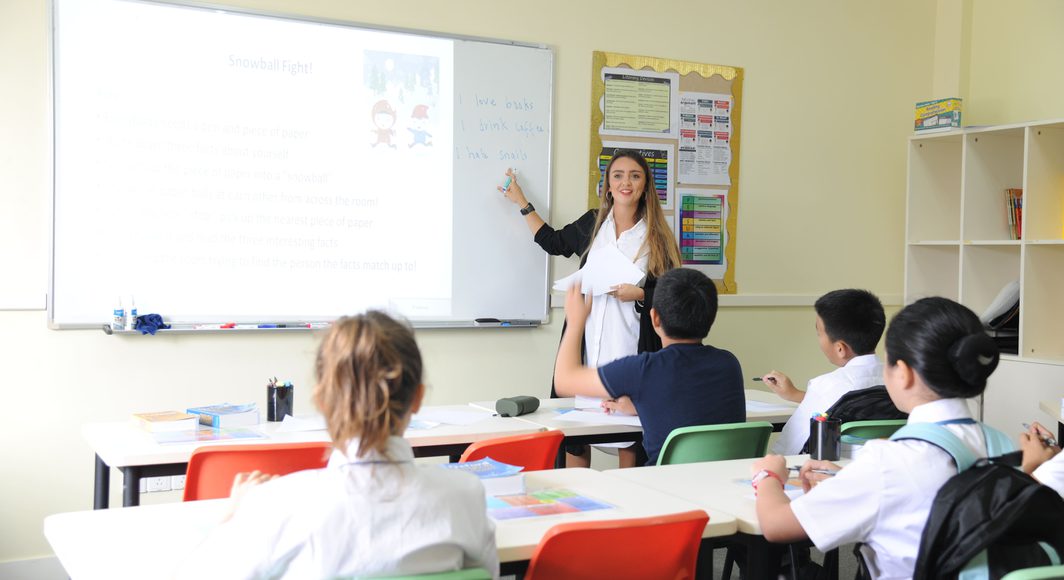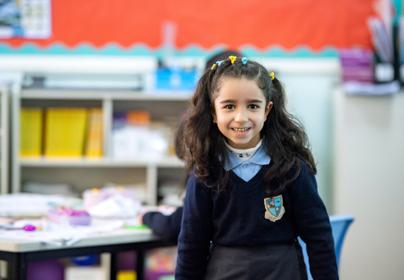1. Please briefly describe your journey to become a teacher at Britannica.
I am originally from a small seaside town in Cornwall, UK. I gained a degree in History at the University of Exeter before moving to London and enrolling on the TeachFirst graduate program to teach English. I taught in Battersea, London for a number of years before moving to a school outside of Shanghai wherein I taught for a year before moving to Britannica. Having taught in two major cities, I feel very privileged to have been able to work with a hugely diverse range of staff and students.
2. What do you enjoy most about being an English teacher?
As an English teacher, the most enjoyable element is pupil discussion. I am always amazed by the ability of children to analyse, internalise and communicate information in original and interesting ways. The ideal English learning environment has always been a dynamic and lively room where in students feel able to eagerly contribute their insights. For me, the teaching is only rewarding when students feel as though they are making progress and take great pride in their own achievements and growth. Teaching is holistic: I am passionate about teaching the child as a whole and the moralistic aspect of English teaching through literature surpasses academic success alone, but also facilitates important dialogue around human nature and our values.
3. How does Britannica nurture the next generation?
At Britannica, we place great value and importance on creating a safe environment that encourages students to take risks in their learning as the next generation will need to be resilient and effective communicators. We want our students to be able to articulate their individual insights, criticisms and beliefs with confidence and clarity - individualised and differentiated learning is key for such development in a diverse and multi-talented student cohort. Further, through the study of literature, students are taught to be inquisitive and critical individuals who are determined in their asking of ‘why?’ and ‘how?’ Through the development of this autonomy, they will be able to think independently, analytically and creatively in order to be successful in their workplaces and as thoughtful and empathetic adults.
4. How have you engaged students with English at Britannica?
At Britannica, we believe that high expectations and therefore student pride are vital for the engagement of every student. Learning and progress should be visible for the child as well as the teacher, enabling effort to be innately rewarded with a sense of achievement. However, it is vital that such development is achieved through a stimulating and interactive environment wherein the spoken word is valued as highly as good quality written work. The practice of oracy within the classroom is embedded into all lessons and follows the current trend of ‘speaking for writing’ in educational theory which elevates the importance of communication as a mechanism for learning. Students regularly engage with in-class debates that circle the moral and ethical issues of their current study, discussions and role-plays to bring their learning to life and deepen their understanding.
Further, the curriculum is designed with the interests of the student population in mind; for example, in Year 7, while students are studying narrative writing they use Norse Mythology as a muse so that they are able to craft using familiar characters such as Loki and Thor. Additionally, cross-curricular planning is monopolised so that students are able to draw on prior contextual knowledge to enable immersion in the subject matter; in Year 9, students study the poetry of Wilfred Owen in the First WorldWar after studying this unit in History, enabling them to effectively battle notions as complex as nihilism whilst also evaluating the nature of war.
5. What makes IGCSE and A-Level English courses internationally recognised?
The English Cambridge IGCSE and A-Level courses are widely regarded for their rigour and the skill-set that they arm students with for tertiary education. Through the analytical and creative framework of the courses, students develop the crucial skill of critical thinking and inference – such life skills are vital for the successful development of independence both within and outside of academia. The closely linked syllabi of IGCSE and A-Level enable students to follow a clear and delineated path of progression which effectively enhances the students’ skill-set within the subject at an impressive rate so that grow this visible and easily tracked.
6. What suggestions do you have for students interested in English?
As Faulkner said: “Read, read, read.” With the rise of technology, it is the unfortunate case that reading risks being rejected in favour of playing games on PlayStations and Xboxes, or put to the side in order to make time for texting, tweeting and Facebook (or WeChat!). However, for new English learners, books are imperative for the internalisation of vocabulary and grammatical structures and such learners cannot hope to expedite their learning without them. For higher level English speakers and those with English as a first language, reading is essential for the growth of creativity and original thought. A lot of people, adults as well as children, give up on reading after losing interest in a book they’ve tried to read that they found just wasn’t for them – however, it is really important that children explore a range of genres, fiction and non-fiction, to find their favourite types. Speaking to friends, teachers, librarians and parents to gain recommendations is crucial for the encouragement of reading and therefore also of lifelong learning.
There is a well-proven link between academic achievement, future success in the job market and rate of student reading. However, more importantly, the stimulus of reading is also known to provoke soft skills such as confidence and creativity, empathy and resilience. The Tech icon and Founder of Tesla, Elon Musk, is well-known as an avid reader (up to ten hours a day as a child) who attributes aspects of his success to the devotion of this past time.

Apply for Secondary Scholarship
Successful candidates will have an opportunity to win up to 100% scholarships for Spring and Summer Terms, 2019-2020 or the Academic Year 2020-2021.
To learn more about Secondary at Britannica and register your interest in scholarship application, please click the button below to fill the form. The school will be in contact soon.




